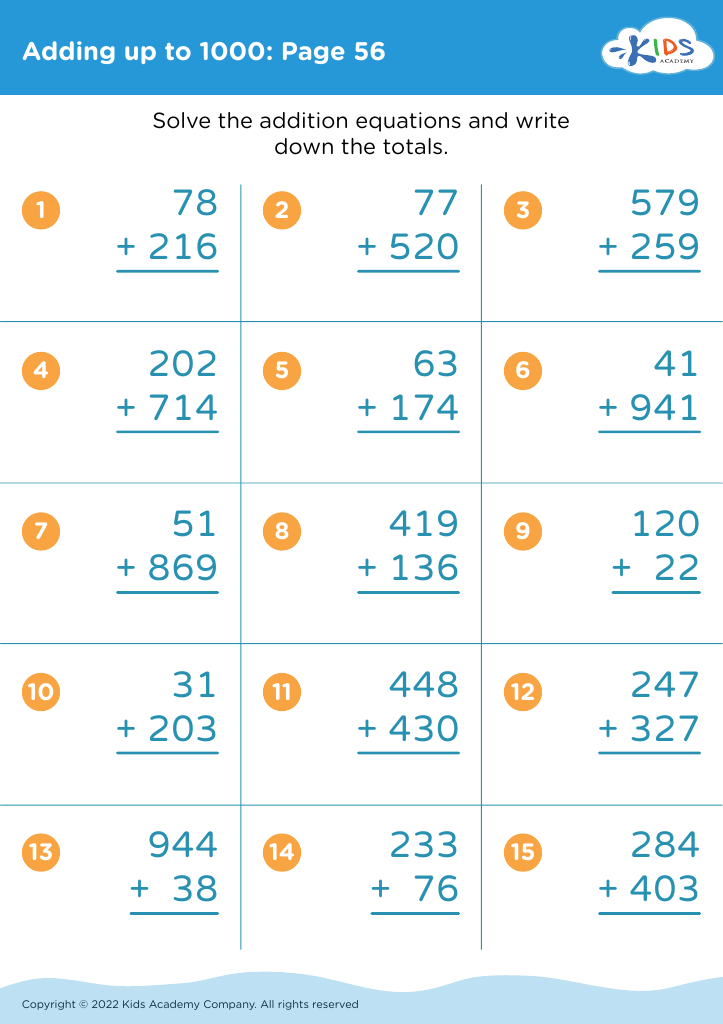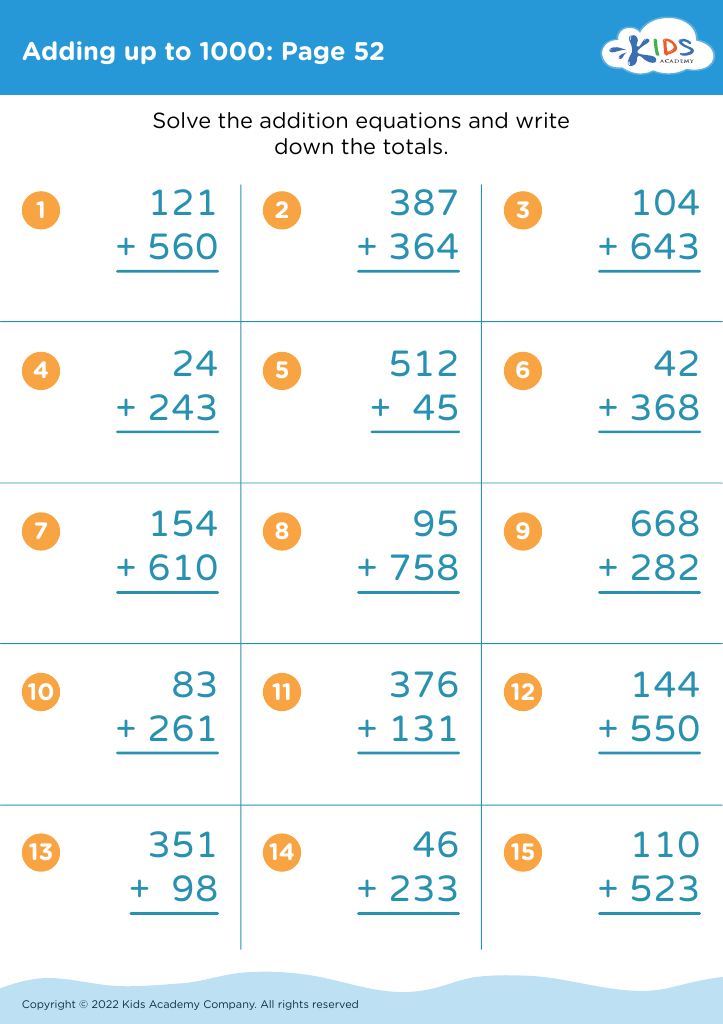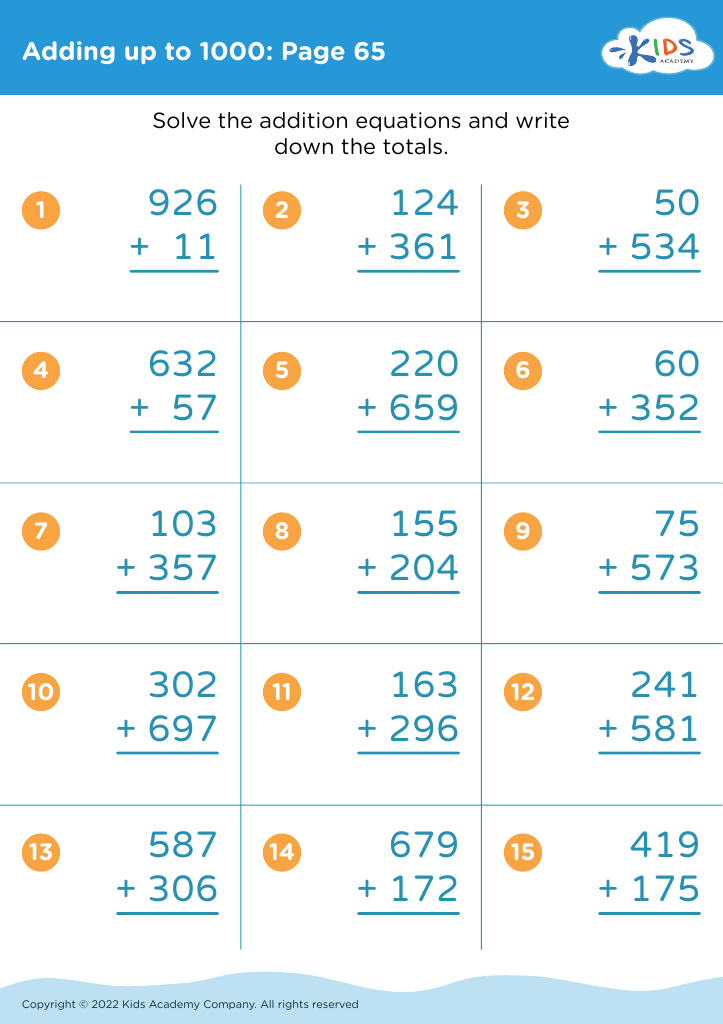Mathematical reasoning Adding up to 1000 Misc Worksheets for Ages 7-8
5 filtered results
-
From - To
Explore our engaging collection of "Mathematical Reasoning Adding Up to 1000 Misc Worksheets" designed for children ages 7-8. These worksheets provide a fun, interactive way for young learners to strengthen their addition skills while tackling diverse mathematical challenges. With an emphasis on critical thinking and problem-solving, our resources encourage students to explore numbers beyond simple addition, laying a strong foundation for future math learning. Each worksheet is crafted to promote reasoning skills, helping your child develop confidence and independence in mathematics. Perfect for home or classroom use, these worksheets make learning math both enjoyable and effective!
Mathematical reasoning is a crucial skill for children ages 7-8, particularly in the context of adding up to 1000. As parents and teachers, understanding and promoting this foundational skill is vital for several reasons.
Firstly, mathematical reasoning fosters critical thinking. When students learn to break down problems logically and explore various strategies to solve them, they enhance their cognitive skills, which are essential across all areas of learning.
Secondly, working with larger numbers, such as those up to 1000, builds confidence and equips students with the ability to tackle more complex mathematical concepts in the future. This can create a positive attitude towards math, reducing anxiety and fostering a growth mindset.
Additionally, as students practice adding up to 1000, they develop number sense—a deep understanding of numbers, their relationships, and operation principles—laying a strong foundation for subjects like algebra and geometry later on.
Finally, numeracy skills are indispensable in everyday life. Proficient mathematical reasoning helps children relate math to real-world situations, improving their decision-making and problem-solving abilities. In sum, fostering mathematical reasoning in young learners is essential for their academic success and practical life skills.




















